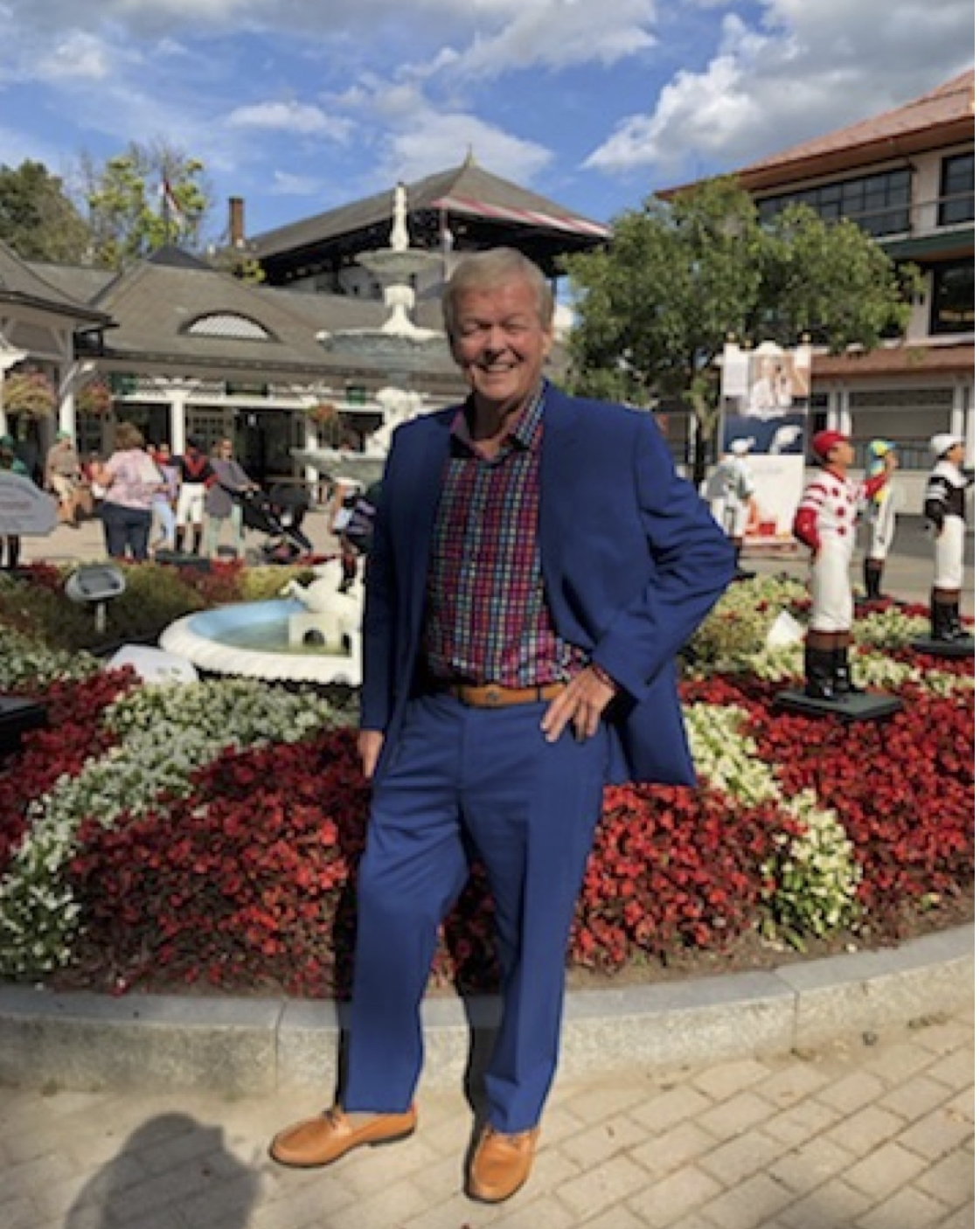
Owner-breeder (and WV racing commissioner) on why he supports Lasix
(Photo: Ken Lowe at Saratoga in 2019)
I’ve never met Mr. Chester Thomas but totally agree with his thinking and his explanation for continuing current administration policies of Lasix. I also agree with his opinion behind eliminating catastrophic injuries by improving track surfaces, an issue capable of being corrected. Furosemide, however, is a solution that does not need correcting. I can only suspect that some opponents of Lasix have hidden agendas.
As a small business owner with interest in several states, I have traveled extensively in many parts of the world along with having a plethora of experience in “PR”, not necessarily public relations but also political reasoning. My career includes a diverse range of positions including as an elected union official AFL- CIO Local 553, representing sellers, as well as wearing several hats within the horse racing industry. I’m likely one of only a few who have worked as a mutuel clerk, attended New York Jockey Club school for racing officials, then served as State Patrol Judge among other racing official positions. For the past several years now, I have served as a racing commissioner with the State of West Virginia and currently serve on the board of directors for the Association of Racing Commissioners International (ARCI). Previously, I was elected president of the Charles Town Horsemen’s Benevolent and Protective Association after a stint on their board. I also have owned and bred thoroughbreds for more than 10 years in Maryland after previously racing in Maryland, Pennsylvania, West Virginia, Virginia and New York.
The threat of efforts to eliminate Lasix brings two major instances to my mind. No. 1, as a survivor of a six-way bypass open heart surgery in 1997 that changed my life. Oh, I’m healthier and hopefully wiser as I take seven different medications every day. One of which is a small white pill, 40mg, of furosemide, which reduces fluid and allows me to continue a productive life.
But I want to share with everyone No. 2, the pictures that remain in my mind as the identifier and official timer with a stopwatch at Charles Town Races and Shenandoah Downs in Charles Town, W.V. prior to the extended usage of Lasix by horsemen. I witnessed on numerous occasions horses bleeding from the nostrils at the finish line, sometimes profusely. The memory of one horse in particular going down gasping for breath as the animal choked on its own blood while its lungs filled is burnished in my memory. Anyone who truly has a love for these magnificent animals would not deny the use of Lasix. To do so is a most inhumane practice and beyond reason.
Count me in on working to make horse racing stronger using my experience and love for horses. But my experience tells me the strength of the industry comes from putting the horse first, through proper medication, utilizing safe track surfaces and strict enforcement of rules, which I hope is pursued for as long as I’m alive and beyond.
Ken Lowe, appointed in 2016 by Governor Jim Justice to the West Virginia Racing Commission, initiated his career pursuits within the construction industry and through the entrepreneurial experience ventured into the insurance brokerage business. These endeavors led him into property management, real estate brokerage, office buildings, commercial, hotel and restaurant development business. In 2004 Ken dove deep into the thoroughbred industry as owner and active manager of a racing stable and breeding operation within the State of Maryland, following various racing official positions he held in the mid to late 1970’s.












